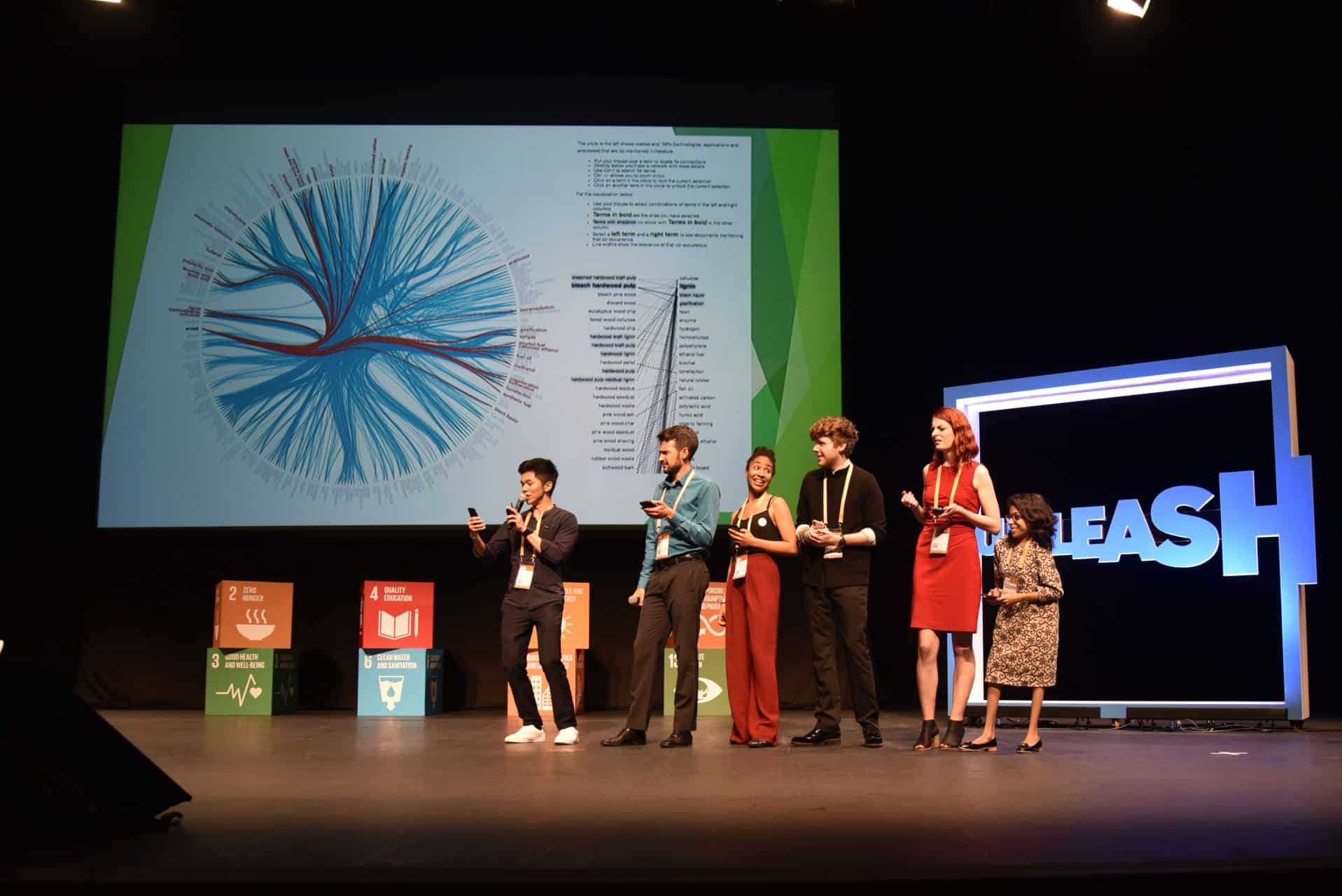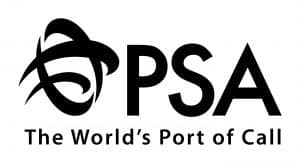
Winners of SDG 12: Responsible Supply Chain and Consumption
Gold winner: Bridg.it
Bridg.it won for a solution with an app that matches cross-industries with excess materials.
The solution is a platform that creates cross-industry behavioral nudges towards connection in a supply web. The solution includes: (1) Innovation Predictor; (2) User Interface to help us recognize our natural state of social curiosity; and (3) Machine learning that can analyze and store valuable information on success and failure cases of unexpected collaboration guiding innovation.
Bridg.it works around breaking cross-industry cultural barriers, vocabulary gaps and fear of change. The innovator predictor takes us away from a liner mindset that creates silos and communication problems. They use the capability of modern technology to process the possibilities created by cross-industry connections and store information about previous and possible future benefits of jumping over those barriers. The goal is to use unexplored and undervalued information as key resources for the platform.
The users are producers of branded goods (corporates & SMEs), social impact startups, and industrial ecology experts in India. To producers, they offer potentially symbiotic connections with one another, with experts, and with new disruptors who have innovation to share. To experts, Bridg.it offers knowledge sharing and research collaboration opportunities, and to social impact startups, they offer visibility.
Silver winner: cUpcircle
cUpcircle won silver with a solution to cut down use of single-use plastic cups.
cUPcircle is a cup-as-a-service subscription model for cafes and cafeterias. We store and circulate an inventory of reusable cups (made from 100% recycled materials), providing cups alongside cleaning and logistical services that alleviate reusable cycle pain points for cafes and consumers. Our subscribers get to provide eco-friendly coffee options that they can afford (and do not need to manage), while substantially reducing their waste. Meanwhile, the consumers’ coffee on-the-go experience remains almost identical. Consumers receive a light, durable reusable cup in place of disposables, and throw it into the nearest “smart bin” when done. The smart bins recognize the cup with a barcode, and credit that consumer’s digital profile back the deposit they paid at purchase. Cups are picked up, cleaned and sorted at a central hub, and redistributed as needed among subscriber outlets.
Direct customers are university cafes, eager to meet student demands for sustainable coffee options, but unable to invest in alternatives on their own. Cafe customers are university students in the UK, aged between 18 – 29 yrs. They care about sustainability issues but have little extra time and income. Our solution offers them an actionable, eco-alternative that matches the need for convenience.
Bronze winner: TUCK
TUCK won bronze for addressing the disposal of sanitary pads and their packaging and its negative impacts on the environment.
There are 20 billion unrecyclable pads and tampons dumped into landfills every year in North America. In the UK, 1.4 million sanitary pads are flushed down the toilet every day.
TUCK realized that some women perceive periods as dirty and embarrassing, so they conceal their soiled pads with extra packaging, or in some cases flush them down the toilet. TUCK is not creating new alternatives to a disposable pad but enhancing the current pad. They plan to reduce the environmental impact by using less plastic in the pad itself through removing the external wrapper, and also providing a discreet disposal method that is integrated with the pad, by changing the color, thereby fully sealing the soiled pad. This way, women are comfortable throwing them instead of using toilet paper to hide them.
This theme is sponsored by:


